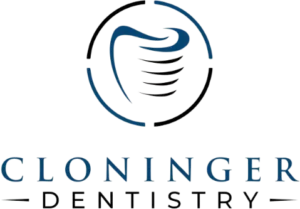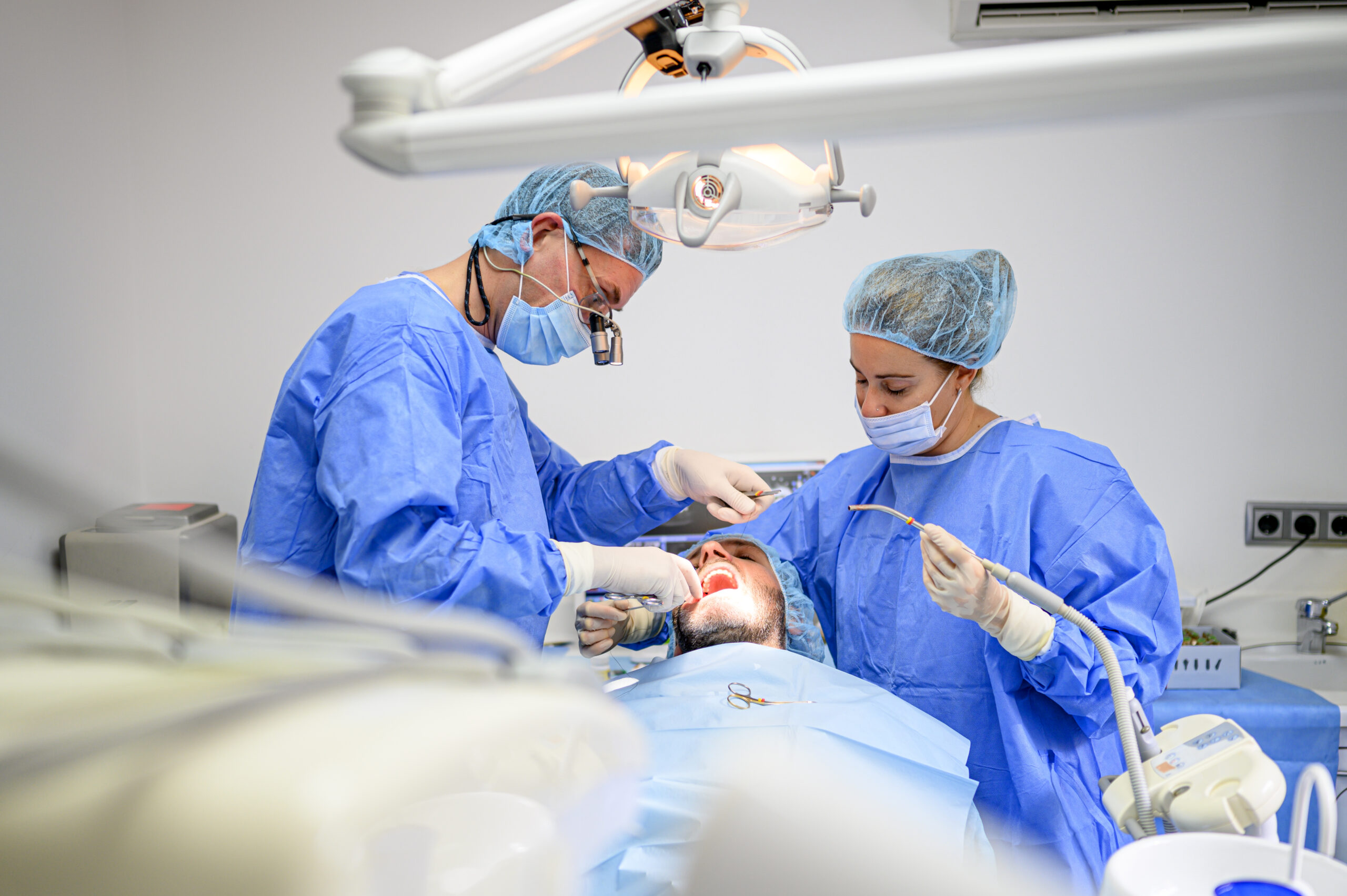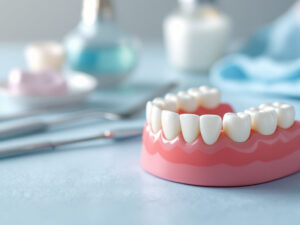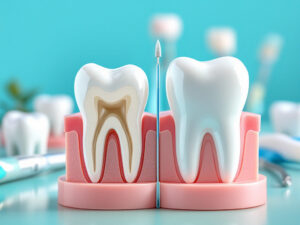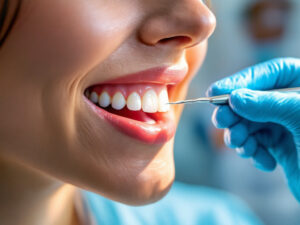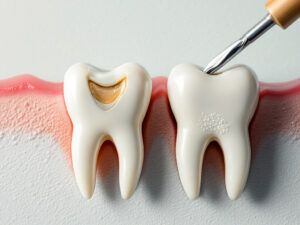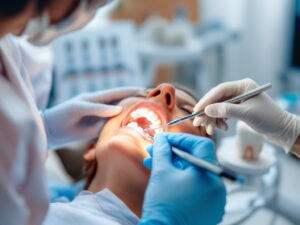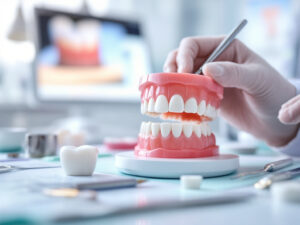When you or a loved one face sudden and alarming dental pain, the need for emergency oral surgery can appear out of nowhere. Whether it is an unexpected injury or a rapidly worsening infection, prompt professional attention is key to safeguarding your well-being. At Cloninger Dentistry, we provide the supportive environment and comprehensive care you need to address urgent dental issues. By remaining empathetic to your situation and offering individualized treatment plans, our team ensures you receive the support necessary for long-term recovery and ongoing oral health.
Recognize the need for urgent care
A dental emergency can encompass a wide variety of circumstances, including severe toothaches, excessive swelling, or traumatic injuries. Every person experiences these events differently, yet the overarching concern remains the same: quick, effective intervention. Feeling alarmed or uncertain is understandable. Knowing when to seek professional help, though, is vital.
One of the most concerning scenarios is when pain escalates to the point of interfering with your day-to-day routine. Pronounced discomfort that persists for several hours often indicates a deeper issue, such as infection in the tooth or gum tissue. According to reports, over 40% of American adults experience mouth pain annually (Absolute Dental). While minor dental inconveniences can often wait until a regular appointment, urgent indications like visible swelling, sustained bleeding, or signs of infection need immediate professional attention.
Common triggers of dental emergencies
- Severe toothache or jaw pain
- Fractured or chipped teeth from accidents or bites on hard objects
- Uncontrolled bleeding near gums or in the mouth
- Swelling in the mouth that signals possible infection
- Avulsed (knocked-out) teeth due to trauma
If you notice any of these problems, especially those that worsen quickly, you may require emergency oral surgery. Sometimes, even wearing a temporary crown or having a small chipped tooth can evolve into a large-scale problem if left unattended. When pain or discomfort disrupts your daily life, timely treatment can spare you from complications like abscess formation, deep-seated infections, or even difficulty breathing.
Why professional intervention matters
Attempting to self-manage a serious dental emergency can lead to further complications. Cloninger Dentistry specializes in identifying the root cause of your discomfort and applying targeted solutions that yield long-term relief. By using evidence-based approaches, consistent safety protocols, and advanced technologies, our practice ensures you receive high-quality care exactly when you need it. Professional intervention promotes quicker recovery, reduces complications, and preserves more of your natural tooth structure whenever possible.
Explore the risks of delaying treatment
It is not uncommon for individuals to ignore discomfort, hoping the situation will resolve on its own. While there might be smaller dental issues that do not demand immediate attention, some issues can escalate rapidly. Delaying emergency oral surgery might allow infections to spread deeper into soft tissues or even the bloodstream, precipitating life-threatening complications.
Infections and their consequences
Untreated dental infections often start with a simple cavity or minor gum irritation. Over time, harmful bacteria multiply, targeting the tooth pulp and surrounding bone structures. If left unchecked, this condition can deteriorate to:
- Pulp necrosis
- Dental abscesses
- Osteomyelitis (bone infection)
- Deep neck infections that compromise the airway (NCBI)
An abscessed tooth can become especially threatening if the infection travels beyond the tooth’s root. Symptoms such as persistent fever, facial swelling, or difficulty swallowing signal the need for immediate care. Emergency dental services address these situations by removing the infected tissue, draining abscesses, or in some instances performing a tooth extraction service. The aim is to halt the infection’s spread and preserve oral function.
Structural damage from trauma
Traumatic injuries can compromise your mouth’s structural stability, especially if you have a cracked or dislodged tooth. Without urgent treatment, fractures may deepen, and a partially loosened tooth can become fully avulsed. Additionally, broken teeth invite bacteria into the pulp, leading to infection and intense discomfort.
Depending on how severely the tooth is damaged, you may need broken tooth repair or a knocked-out tooth treatment. Both procedures aim to restore your smile’s function and appearance, preventing further injury and pain in the process.
Understand how experts minimize complications
Expert care for emergency oral surgery involves more than pain relief. A trustworthy team addresses your immediate concerns while also preventing complications. At Cloninger Dentistry, we abide by stringent safety measures, giving you top-of-the-line support for both urgent and routine procedures.
Advanced diagnostics and technology
To form a clear picture of your dental situation quickly, our practice integrates:
- Digital xray imaging for immediate, high-quality insights
- 3d imaging dental diagnostics to evaluate complex structures in detail
- Intraoral camera examination for more precise spotting of hidden decay or damages
Using these tools decreases treatment time and refines the quality of surgical interventions. Early detection of underlying issues, like tiny fractures or incipient infection, allows us to recommend the least invasive procedures for a timely recovery.
Effective sedation and anesthesia
Emergency oral surgery often involves sedation or local anesthesia to keep you calm and comfortable. Local anesthetics have been staples of dental care since the 19th century (IntechOpen), yet the method has evolved to ensure safer, quicker, and more controlled applications. These agents block pain perception without interfering with your vital functions.
We screen patients thoroughly for any health risks, allergies, or potential adverse reactions. For some patients, concerns about sedation can make them anxious, especially if they have existing respiratory or systemic health issues. Rest assured, our experts tailor anesthesia materials and techniques to minimize discomfort and maximize safety. Preventative guidelines such as slow injection and careful dosage calculation counteract unwanted reactions like psychogenic responses, systemic toxicity, or rare allergies.
Comprehensive approach to aftercare
Receiving quality care does not end the moment your surgery is complete. Our staff provides you with post-operative instructions and follow-up consultations to ensure wound healing progresses smoothly. For instance:
- Monitoring your incision or extraction site daily for unusual discharge or prolonged swelling
- Learning how to manage pain effectively with medication while limiting the risk of infection
- Avoiding strenuous activities, as well as tobacco and alcohol, in the immediate days following surgery
- Maintaining a modified diet (soft foods, liquids) to avoid aggravating the treated site
Such meticulous aftercare coverage allows you to focus on reclaiming your daily routine without fear of setbacks.
Value a supportive environment
Emergency oral surgery can be physically and emotionally overwhelming. You might never have undergone a surgical procedure, or you might worry about returning to your responsibilities at work or home. These unique challenges often demand empathetic guidance alongside clinical expertise.
Encouragement during vulnerable moments
Experiencing a dental emergency creates stress, anxiety, and fear. At Cloninger Dentistry, our goal is to keep you informed and encouraged throughout each phase of treatment. By understanding your concerns and honoring your preferences, we cultivate an atmosphere where questions are welcome, and emotions are acknowledged with respect and compassion.
For instance, if you feel apprehensive about a possible tooth extraction, our team will walk you through alternative treatments, sedation choices, and post-operative care in detail. Through transparency, we aim to alleviate the fear of the unknown, giving you confidence in every decision you make for your oral health.
Tailored approaches for every patient
Just as no two individuals share the same health profile, each emergency requires a personalized solution. Our practice builds individualized plans customized to your medical history, level of discomfort, and personal preferences. We believe these customizations, whether they involve sedation type or recommended therapies, provide the support necessary for a lasting recovery.
A crucial aspect of personalization involves reevaluating your oral health once the emergency passes. If you have underlying gum disease, ongoing cavities, or an ill-fitting restoration that contributed to your crisis, we can create a comprehensive plan that addresses recurring issues to prevent future emergencies. Services such as gum disease treatment or a painless cavity filling could help maintain a healthier, more resilient smile.
Appreciate the role of comprehensive care
When you choose an expert, you are not getting a one-time fix. At Cloninger Dentistry, our emergency interventions are complemented by a spectrum of family and cosmetic dental services that maintain your oral health moving forward. This continuum of care fosters a complete, long-lasting resolution rather than a quick patch.
Preventive services for overall health
Diligent prevention tackles minor issues before they expand into crises. Preventive measures can drastically reduce the likelihood of needing emergency oral surgery in the future. Our services include:
- Professional teeth cleaning to remove plaque, resulting in healthier gums and enamel
- Fluoride treatment to strengthen vulnerable areas
- Oral cancer screening to catch potential issues early
- Pediatric dental care to set children on a path to a lifetime of excellent oral hygiene
By blending these preventive measures into your routine, you can curtail the severity and frequency of dental urgencies. Our commitment to educating you about daily hygiene, from proper brushing techniques to dietary recommendations, further empowers you to protect your smile.
Restorative options for long-term stability
A severe infection or injury might harm your tooth beyond a point where a simple filling or minor procedure is sufficient. Consequently, emergency oral surgery can include more extensive restorations ensuring the integrity of your bite remains intact. Depending on your situation, you could benefit from:
- Root canal therapy if the infection nests deep within the tooth pulp
- Dental crown placement or porcelain crown service for severely weakened teeth
- Dental bridge placement to restore the arc of your existing teeth and fill gaps
- Custom denture fitting or snap in denture service if multiple teeth require replacement
Protecting and strengthening your teeth after emergency surgery reduces chances of reinjury or reinfection. Properly executed restorations feel natural and let you enjoy everyday activities like speaking, chewing, and smiling without discomfort or worry.
Learn how to prepare for surgery
Preparation is often overlooked amid the panic of a dental crisis, but informed readiness can make your experience smoother and help prevent complications. Although every case varies, some general guidelines can optimize your comfort and safety.
Fasting and health considerations
If your surgery requires sedation, you may need to fast for least eight hours before the procedure. Having food in your stomach can raise the risk of aspiration during anesthesia, complicating the surgery and recovery (Oral Facial & Implant Surgery of the Rockies). Even if your procedure is less invasive, it is always wise to ask how you should prepare.
Additionally, provide a full medical history—complete with allergies, existing prescriptions, and chronic conditions. For example, individuals who smoke may need to avoid tobacco for at least 12 hours before and 24 hours after surgery. This habit can hamper your body’s natural healing mechanism.
Practical steps on surgery day
- Dress comfortably, ideally with short sleeves for IV lines if sedation is necessary (Oral Facial & Implant Surgery of the Rockies)
- Arrive roughly 20 minutes early to handle additional paperwork or discuss last-minute concerns
- Plan for someone to drive you home if sedation is used. You will likely be groggy, slowing your response time
Asking questions beforehand eases any lingering worries. Some key points to clarify include pain management strategies, estimated recovery times, and aftercare restrictions. A thorough understanding keeps you calm and focused on healing.
Safeguard the healing process
The days following emergency oral surgery are crucial. You may feel relieved that the crisis is resolved, yet your mouth still requires gentle care and vigilance to achieve full recovery.
Post-operative instructions
Before you leave our office, we provide a personalized set of guidelines. Generally, these instructions address topics such as:
- Keeping the surgical site clean with prescribed rinses
- Applying ice packs to offset swelling
- Taking recommended pain relievers and antibiotics at the proper intervals
- Monitoring for signs of infection, like foul odor, discharge, or renewed swelling
Persistent bleeding is uncommon but can happen, especially for extractions or surgical incisions in delicate areas. If you notice ongoing bleeding, place gauze directly over the region with consistent pressure (e.g., biting down gently if it is accessible). If the issue persists, contact our office or seek additional medical help if necessary (OSSIMDocs).
Transitioning back to normal life
Your mouth may be tender, so shifting to soft or liquid foods for a few days helps prevent further irritation. Foods like smoothies, yogurt, or mashed vegetables offer nourishment without stressing your healing tissues. Gradually reintroducing firmer foods keeps you from straining areas that might still be fragile.
Keeping up with gentle oral hygiene is also essential. Brush with caution around the surgical site, and follow any instructions regarding specialized mouthwash to maintain cleanliness without aggravating stitches or clots. With adequate rest, good pain control, and careful monitoring, many patients resume most daily activities within a few days to a week.
Integrate future prevention strategies
Undergoing emergency oral surgery encourages you to reevaluate how you approach your dental health. Emergencies can often be traced back to underlying issues like inadequate oral hygiene or untreated minor problems that gradually became severe.
Scheduling routine checkups
A routine dental checkup allows your dentist to detect minor conditions before they spiral out of control. Regular cleanings remove plaque, an effective step in preventing cavities and gum disease. Likewise, helpful screenings may detect subtle shifts in your dental and periodontal status, enabling early intervention.
We recommend that, after your recovery, you schedule ongoing reviews of your oral health. If you have a history that indicates susceptibility to certain issues, we can work together to create an even more robust plan, potentially incorporating a periodontal maintenance cleaning or specialized therapies for lingering sensitivities.
Embracing a healthy lifestyle
Comprehensive care extends beyond the dental chair. Maintaining excellent oral health also involves:
- Practicing a consistent brushing and flossing routine
- Staying hydrated to encourage saliva production, thus limiting bacterial growth
- Moderating sugar and acidic foods, which can weaken enamel
- Taking advantage of custom resources, such as a tooth sensitivity treatment plan if needed
Pairing these with professional dental care helps you restore and preserve your smile. It also fosters confidence, knowing your investment in oral health stands resilient against potential crises.
Choose Cloninger Dentistry for peace of mind
Deciding who you trust with your family’s well-being shapes how you cope with emergencies and continue your long-term dental care. At Cloninger Dentistry, we deliver a combination of expertise, technology, and empathy that sets us apart.
A commitment to quality and transparency
We are an insurance friendly dental practice that upholds complete transparency in pricing, diagnosis, and treatment plans. We believe you have the right to fully understand the procedures we recommend and their costs before making a decision. Whether you need a private dental consultation or a written treatment estimate, our team accommodates all requests so you always feel empowered in your own dental journey.
For those concerned about finances, flexible financing dental options help break down treatment costs into manageable installments. Our focus is on delivering quality, patient-centered attention that relieves pain, resolves complications, and preserves healthy teeth for the future.
Supporting your family’s unique challenges
Many families juggle busy schedules and worry that an emergency might catch them at the worst moment. We understand these concerns, so we offer a same day dental appointment when feasible. Furthermore, if urgent complications arise at unexpected hours, we prioritize your immediate needs through our emergency dental care services.
By addressing both the emotional and clinical aspects of your condition, we create a space where you receive not only professional treatment but guidance, attentiveness, and genuine compassion. Our approach acknowledges that successful recovery from any oral health crisis needs a caring touch alongside scientific expertise.
Frequently asked questions
-
How do I know if it is a true dental emergency?
If you experience persistent or severe pain, visible swelling, ongoing bleeding, or a knocked-out tooth, it likely constitutes a dental emergency. Traumatic injuries and infections that worsen within hours or days also require quick attention. When in doubt, calling a dental professional can help determine your risk level. -
Can I treat sudden tooth pain at home?
Mild toothaches might be temporarily relieved with over-the-counter medication or a cold compress, but any intense or long-lasting pain needs professional inspection. Home remedies do not address underlying infection or structural damage. Delaying proper treatment can cause further complications, including abscess formation and potential tooth loss. -
How critical is timing for a knocked-out tooth?
Timing is extremely important. Replantation within 30 minutes offers the highest chance of saving the natural tooth (Absolute Dental). If the tooth is dirty, gently rinse it using cool water. Avoid scrubbing away attached tissue. Attempt to place it back into the socket if possible, or keep it moist in milk until you can see a dentist. -
What should I expect after emergency oral surgery?
Expect a recovery period ranging from a few days to over a week, depending on the procedure. Slight swelling, soreness, and mild bleeding are common initially. Following post-operative instructions, such as sticking to soft foods and taking prescribed medications, helps expedite healing. If symptoms worsen or fail to improve, contact your dentist for further evaluation. -
Is emergency oral surgery covered by insurance?
Coverage depends on your specific dental insurance plan and the type of emergency. Many plans cover medically necessary procedures, but you may still have co-pays or deductibles. You can contact your insurance provider for details on coverage and out-of-pocket fees, or consult our insurance friendly dental practice team for assistance.
By remaining informed, prepared, and connected to trustworthy dental care, you can turn an overwhelming dental crisis into a manageable situation. When faced with emergency oral surgery, Cloninger Dentistry ensures that you receive comprehensive care, empathetic guidance, and individualized support at every step. Through our advanced diagnostic tools, skilled professionals, and commitment to your well-being, you gain the confidence and reassurance necessary for a smooth recovery and a healthier tomorrow.
